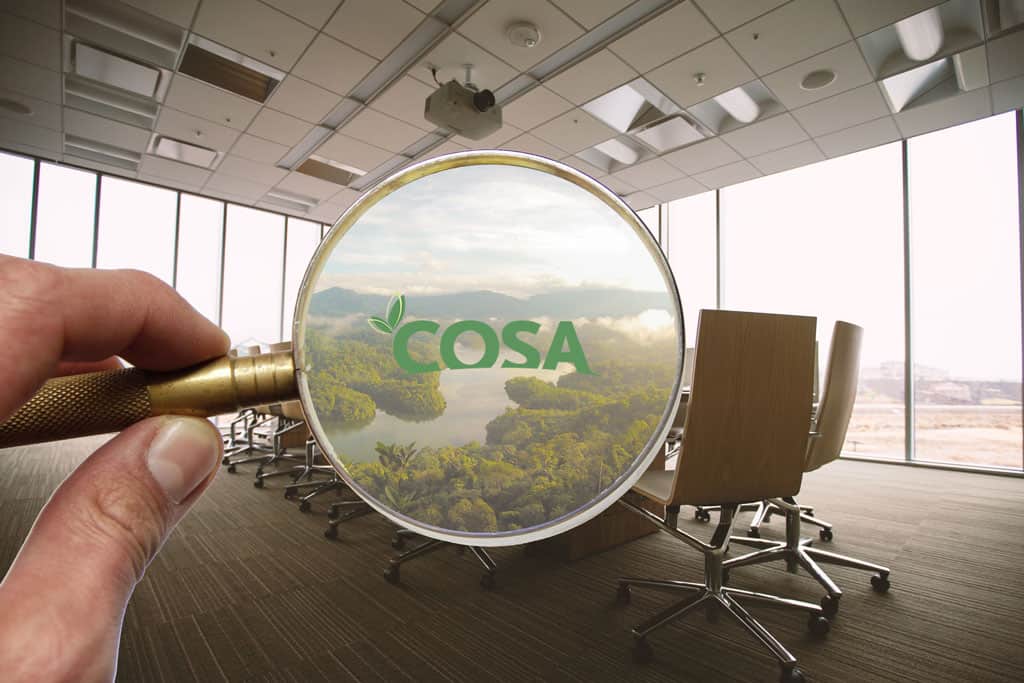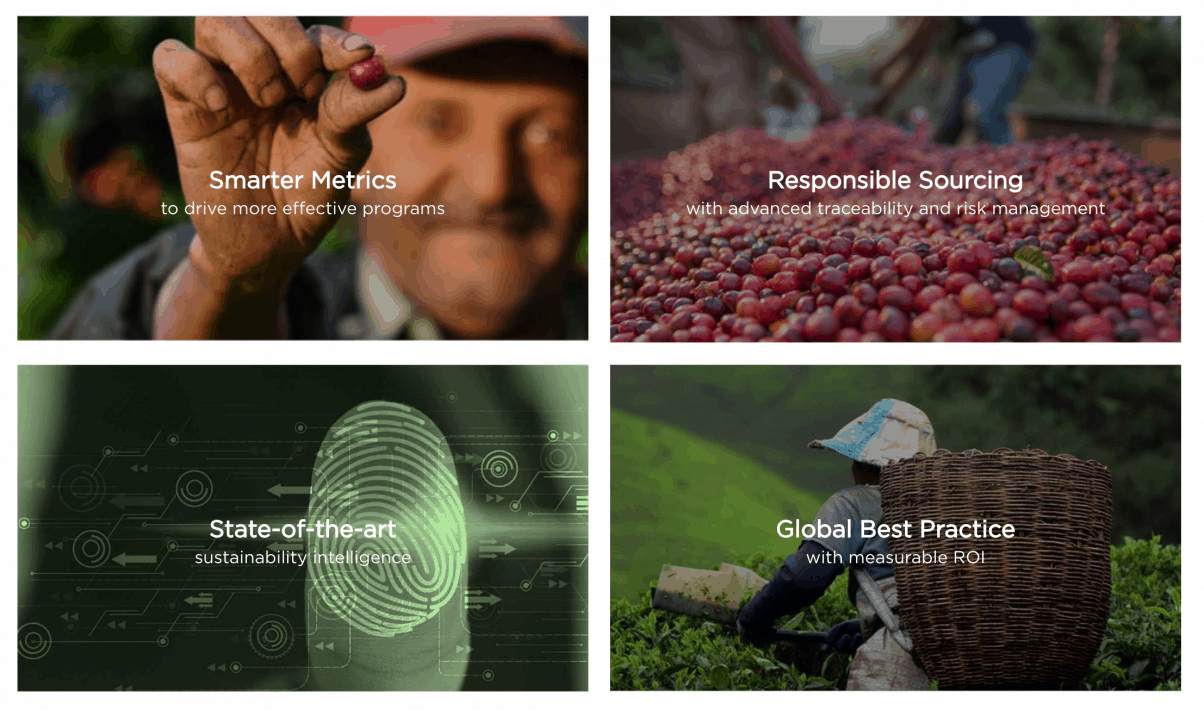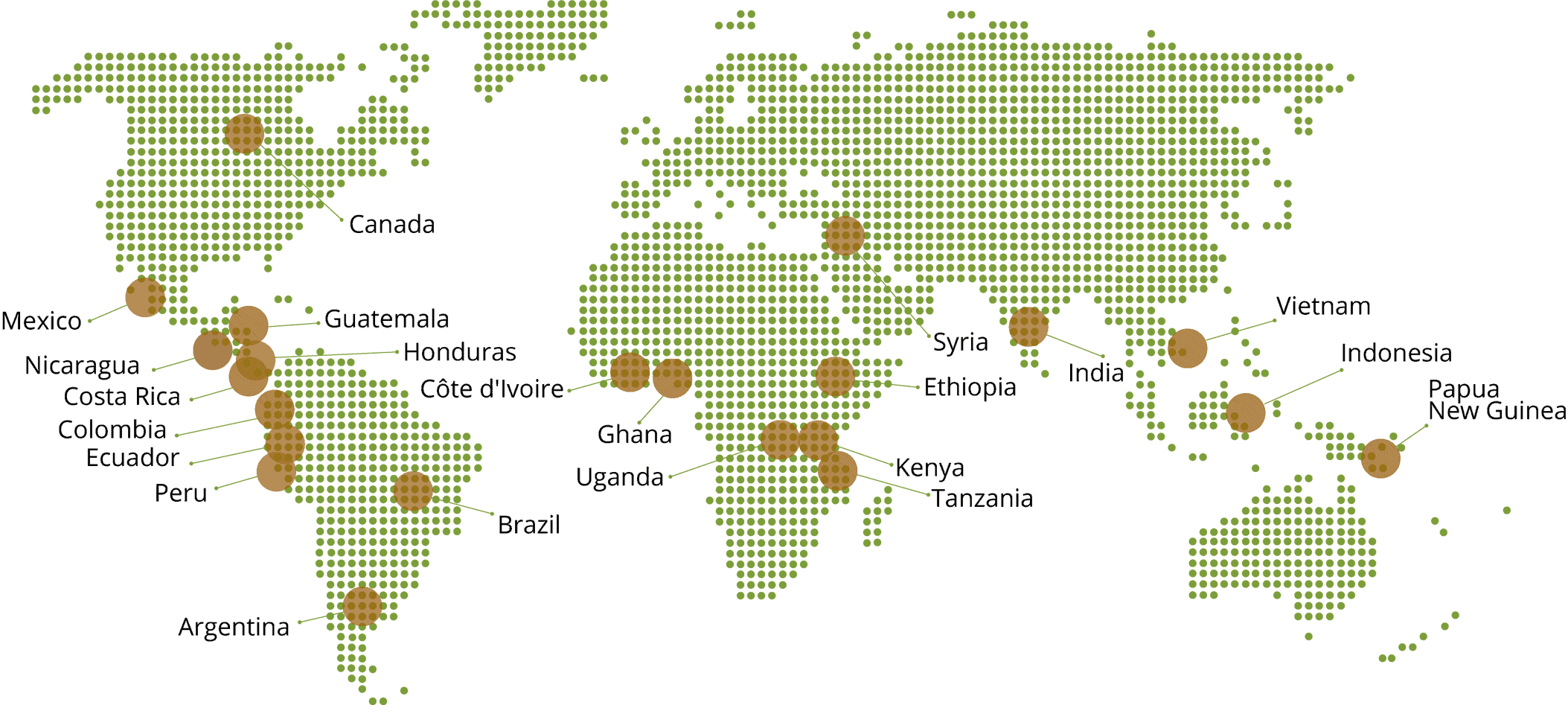Of the many flaws inherent in modern agriculture, there’s reason to consider this as the most devastating:
2/3rds of the world’s poorest people are farmers in developing countries.
These farmers, most of whom earn their living from a plot of land no bigger than a soccer field, experience life as a constant struggle for the commodities that grow beneath their feet.
It’s an imbalance so tilted away from the impoverished that the UN decided ‘no poverty’ and ‘zero hunger’ were their top two sustainable development goals.
Urgency is ripe, and organisations like COSA are truly stepping up to the plate.
What is COSA?
Since 2006, COSA has been determined to flip the script. The Committee On Sustainability Assessment may be a somewhat vague title, but their mission is clear and direct: to define and measure the impact of sustainable practices through consistent metrics, and build global knowledge around what works, and what doesn’t work, for sustainable agriculture.
COSA utilise advanced guidance and technologies to accelerate sustainability and promote supply chain transparency
In essence, COSA provides the intel and the tools necessary for organisations to evaluate and improve their own sustainability and supply chain transparency. As the old saying goes, give a man a fish, he’ll eat for a day, give him precise metrics on his sustainability practices…
These organisations include every level of the agriculture supply chain, from individual farmers to exporters and corporations, and even governments that want to improve or build national agricultural commodity sectors:
- Farm and Community – COSA has evaluated data from tens of thousands of farmers across Colombia, Kenya, Honduras, Cote d’Ivoire and more, helping to improve the understanding of the social, economic, and environmental factors of sustainability in communities growing coffee, tea, cotton and cocoa.
- Supply Chains and Companies – COSA’s sustainability audits for the likes of McDonalds, Nestlé, Coca-Cola and McCain Foods have helped such renowned institutions to understand the realities of the farmers they source from and in so doing, improve their sustainability efforts.
- Partners in Sustainability – Alongside the Global Coffee Platform, the WWF and the Sustainable Food Lab, COSA has collaborated on research into sustainability metrics and performance indicators for similarly-minded organisations.
- Governments and Agencies – Governments like Switzerland, Australia and Mexico, as well as IGOs like the United Nations, have partnered with COSA to better understand and act on problems of sustainability at the national level and across the globe.
Context is King in Supply Chain Transparency
“Context is king in understanding farmer realities in diverse regions of the world,” says Louise Salinas, Director of Administration for COSA. “That’s why getting the language in our surveys right – both the literal translations and the contextual references – is crucial for us.”
TextUnited provided COSA with translations to Portuguese and Oromo for their work in South America and Africa. We are always happy to support forward-thinking organisations in translating surveys, analysing sentiment and facilitating communication throughout multinational supply chains.
Why COSA’s Work Matters
There’s another data point that sheds some light on why the world needs organisations like COSA:
While 96% of the Global 250 companies now report on their sustainability, their impact has been almost unobservable (KPMG Survey of Sustainability Reporting 2020).
Why are farmers and factory workers still grossly underpaid for their critical work? Why are forests being devastated at record rates in the name of business? Why are the world’s biggest companies recording profits in the hundreds of millions while their ‘sustainable’ practices are routinely failing to live up to the standards that 2021 demands?
COSA metrics align with dozens of leading institution and international accords
It’s not laziness; sustainability reporting is 100x more prevalent now than it was at the turn of the century (Harvard Business Review).
The problem here lies with ineffectual data. The very metrics that companies use to measure and disclose their impact are often missing, for two reasons:
1. Difficulty of Measurement
Let’s not pretend that a company measuring things like carbon footprint is a simple matter.
Beyond direct emissions from factories, offices and vehicles, companies are expected to disclose the emissions of every action along their supply chain, along with emissions from employee business trips, waste disposal, investments and more.
For most companies, these indirect carbon emissions constitute the overwhelming bulk of their footprint. In the case of shoemaker Timberland in 2009, 95% of their emissions were indirect emissions, and yet could not be tracked due to the complexity of doing so (Harvard Business Review).
2. Vague and Unrelatable Data
Would you understand the true environmental impact of the release of 31 micrograms of benzene per cubic metre at Delek’s Louisiana refinery?
Data in sustainability reports is often a minefield of jargon without context. The average person has no idea how about micrograms of benzene, grams of phosphorous and even the more common tonnes of CO2.
Without tangible reference points, these metrics fall on deaf ears, making them largely ineffectual.
COSA work primarily in developing countries and across global agri-food supply chains.
The Fight Continues
Though sustainability reporting and supply chain transparency have certainly become the norm in the 20th century’s third decade, the gaping holes in the system itself are still fully visible.
COSA’s approach to sustainability reporting is fighting this. With smarter metrics and advanced traceability, alongside a measurable sustainability ROI for communities, companies, partners and governments looking to make a real difference, COSA are putting an end to the prevalent ‘check-the-box’ mentality and ushering in the future of sustainability from the ground up.




